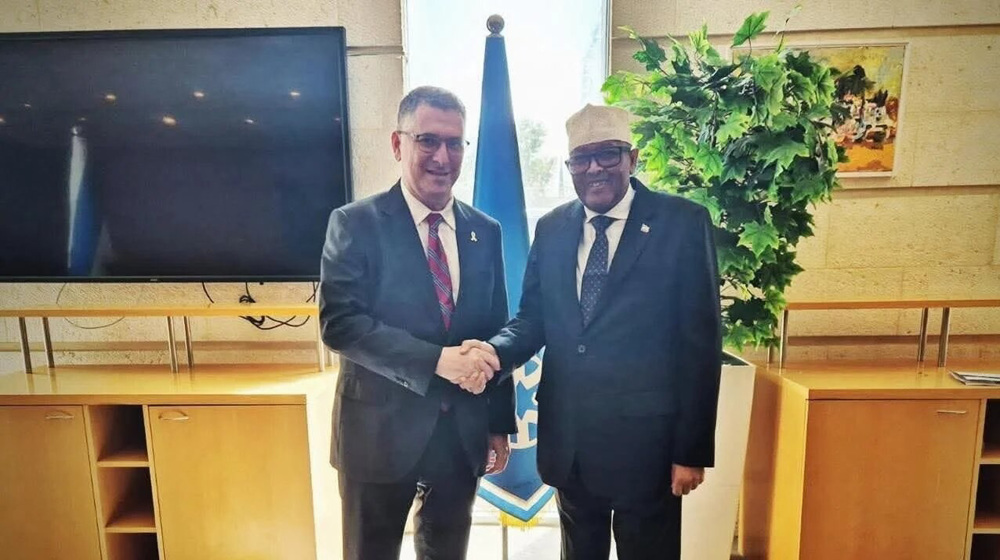Gabon’s Bongo sworn in, starts second term as president
Ali Bongo has been sworn in for a new term as the president of Gabon despite widespread claims that his recent reelection was marred by fraud and vote rigging.
Cannons were fired during a ceremony on Tuesday in the seafront presidential palace in Libreville, where Bongo took his oath of office in front of leaders from several African countries.
“I pledge to devote all my efforts for the good of the Gabonese people and to ensure their well-being ... and respect and defend the constitution and the rule of law,” said Bongo in the ceremony, without making reference to the violence that erupted last month after the presidential election.
The ceremony came after Gabon’s top court controversially validated Bongo’s election win, enabling him to extend his family's reign over the oil-rich country into a fifth decade.
Bongo won the votes with a razor-blade margin, garnering 50.66 percent of the votes against 47.24 percent for opposition leader, Jean Ping, who has vowed not to abandon his pursuit of presidency.
Ping said last week that the approval of Bongo’s victory by Gabon’s Constitutional Court, which he called “miscarriage of justice,” would neither unite the Gabonese nor affect their determination to challenge the rigged votes.
The opposition says some 100 people have so far lost their lives in post-election unrest, while 1,200 others have been taken into custody as part of a government crackdown.
A spokesman of the government said Bongo’s main aim now would be to form a “unity government.” Alain-Claude Bilie-By-Nze added that the cabinet would be formed by this week or the start of the next week.
Regional and continental heavyweights stayed away from Tuesday’s ceremony, although a handful of African leaders, including the presidents of Mali, Niger, Togo and Sao Tome, as well as the prime ministers of Chad, Senegal, the Central African Republic and Morocco took part.
Bilie-By-Nze downplayed a decision by former colonial ruler France to send its ambassador to the ceremony, saying Paris was no longer an influential player in Africa.
“Whether they come or not doesn't change anything. France has no diplomacy any more. It's getting its orders from Brussels,” he said, making a reference to the European Union, which voiced regret that the count had not been transparent.
The African Union and the United Nations have also showed a cool reception to Bongo’s reelection.
Bongo, 57, who came to power in 2009, will now remain at the helm for a second seven-year term, succeeding his father, Omar, who had come to power in 1967 and passed away in 2009.
VIDEO | 18th Olympiad of Persian Language and Literature held in Moscow
VIDEO | Dozens killed after blast hits Shia mosque in Islamabad
Trump signs tariff threat against Iran’s trade partners shortly after high-stakes talks in Oman
VIDEO | Dire consequences ahead: Iran's warning to enemies on escalation
VIDEO | Huge turnout in Sana’a as masses protest Gaza violations, regional escalation
Showcasing missile with ‘extraordinary destructive power’ sign of refusal to renounce defense: IRGC
US imposes ‘terrorist-grade sanctions’ on UN expert, ICC judges amid Gaza accountability drive
VIDEO | Press TV's news headlines










 This makes it easy to access the Press TV website
This makes it easy to access the Press TV website